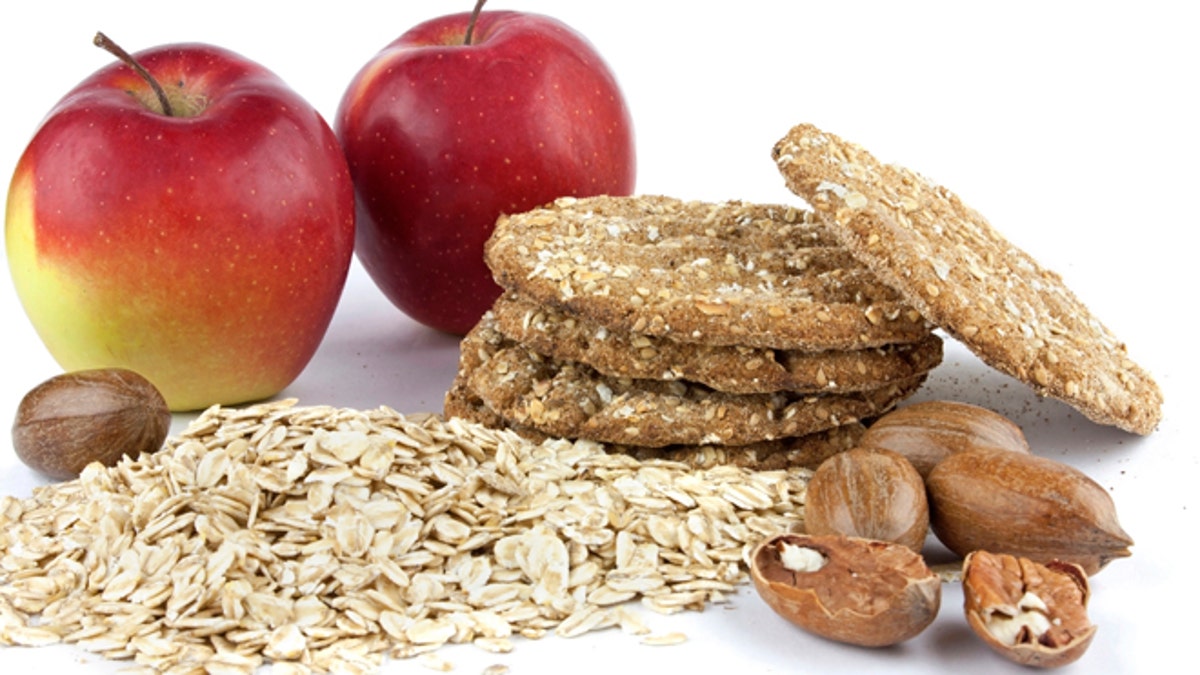
High-fiber foods might as well come with a sticker saying, "Need to poop? Eat this." After all, that's pretty much what cereal commercials, doctors, and everyone else are saying. But, it turns out that fiber might actually be what's backing you up.
RELATED: Eat Your Way to a Better Sex Life
Research published in the American Journal of Gastroenterology found that although in some people a high-fiber diet may speed things along, in others with more severe cases of constipation, increasing fiber can have the opposite effect.
RELATED: Shirtless Nick Jonas Explains How He Got His New Buff Body
And in one study published in the World Journal of Gastroenterology, it was reducing or stopping fiber intake, not ramping it up, that finally scored constipation sufferers relief. "This study has confirmed that the previous strongly-held belief that the application of dietary fiber to help constipation is but a myth," write the study authors.
RELATED: The 14 Healthiest Snack Foods to Buy
"Fiber absorbs water. Look at a bowl of high-fiber cereal that has been sitting in your sink unwashed for a few hours. Without continuing to pour water into it, it can become thick and heavy and get stuck in your bowels," says Elana Maser, M.D., assistant professor of gastroenterology at the Icahn School of Medicine at Mount Sinai. It's like trying to clear up a traffic jam by adding more cars.
RELATED: The Only 5 Exercises You'll Ever Need
That can also mean a lot more gas. The longer fecal matter sits in your system, the longer gas-spewing bacteria have a chance to do their thing. Plus, some forms of soluble fiber (meaning it dissolves in water to form a paste in your digestive tract) can ferment in your gut to cause even more gas, says Gerard E. Mullin, M.D., associate professor of medicine at the Johns Hopkins Hospital and author of The Gut Balance Revolution. However, research on 275 patients with irritable bowel syndrome (which hits about 10 to 15 percent of guys) published in the British Medical Journal showed that having soluble fiber, like psyllium, instead of insoluble fiber, like bran, reduced IBS symptoms including bloating, diarrhea, and constipation.
RELATED: Brad Pitt Is Back and Sexier Than Ever
Confusing enough for you? That's why, before upping your fiber intake in order to clear things out, it's important to determine how much fiber you're currently consuming.
RELATED: The 6 Most Common Ways That Men Die, and How to Avoid Them
While experts disagree on how much fiber you actually need—figures range from 20 to 38 grams per day—most agree that any more than 40 grams per day is just overkill. Hitting those levels, constipation or no constipation, will help keep your blood sugar levels in check, help you feel full longer, prevent weight gain, and keep your ticker ticking away, Mullin says. The best sources include whole grains, fruits, vegetables, and legumes.








































